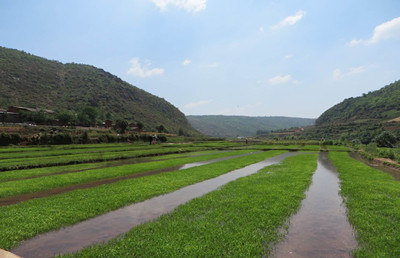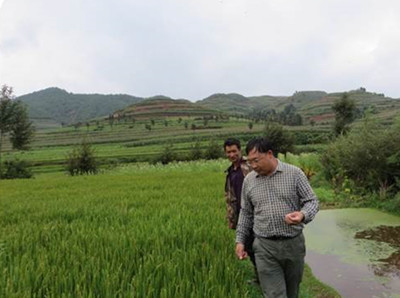Home \ Project News \ Xundian Rice Paddy Sewage Treatment Project of Humana People to People China Supported by National Geographhic Society Air and Water Conservation Fund
In the past few days, informed by National Geographic Society Air and Water Conservation Fund (‘NG’), the HPP-Xundin Rice Paddy Run-off Tail water Treatment Project applied for by the Xundian Project Manager Sheng Xia, was approved by NG with funding support of $25,000. Niulan River is located in Xundian County, Kunming City, Yunnan Province. It’s an important part of the nourishment source system of Dianchi Lake basin. But, on the both sides of the river, because more and more fertilizer is used, the fertilizer residue, the part of hasn’t been absorbed by the rice plants, enters into the river along with rice paddy tail water. It pollutes the river. The tail water treatment project is a pilot project with the purpose of decreasing the discharge of polluting tail water through natural methods. HPP cooperates with Yunnan Academy of Agricultural Sciences' Institute of Agricultural Environment and Resources (the ‘Institute’) to process the paddy tail water in Changjiaba Village, Xiaojie Administrative Village, Xundian County. The main method is to choose a field close to Niulan River as processing field, and plant trees, shrubs or crops which can purify tail water, to drain the tail water from the rice paddy alongside the river to the processing field to finish ecological purification, and then use the water after ecological purification in processing field as irrigation water for second irrigation, in order to reduce water pollution by this kind of cyclic utilization. Climate change and environmental damage bring new challenges to agricultural and rural development. According to the data, 25% of the land is or has been highly degraded globally, but usually, the climate change severely affects agricultural production in the poorest areas. Under this circumstances, HPP carries out a ‘Climate Smart Agriculture ‘ pilot project in Yunnan to improve local agro ecological system and slow down the speed of soil degradation with the methods of water resources protection and crop diversification. In the long term, it helps to decrease the cost of agricultural production and increase the agricultural investment returns accordingly. Rice Paddy Run-off Tail water
Rice Paddy Run-off Tail water 